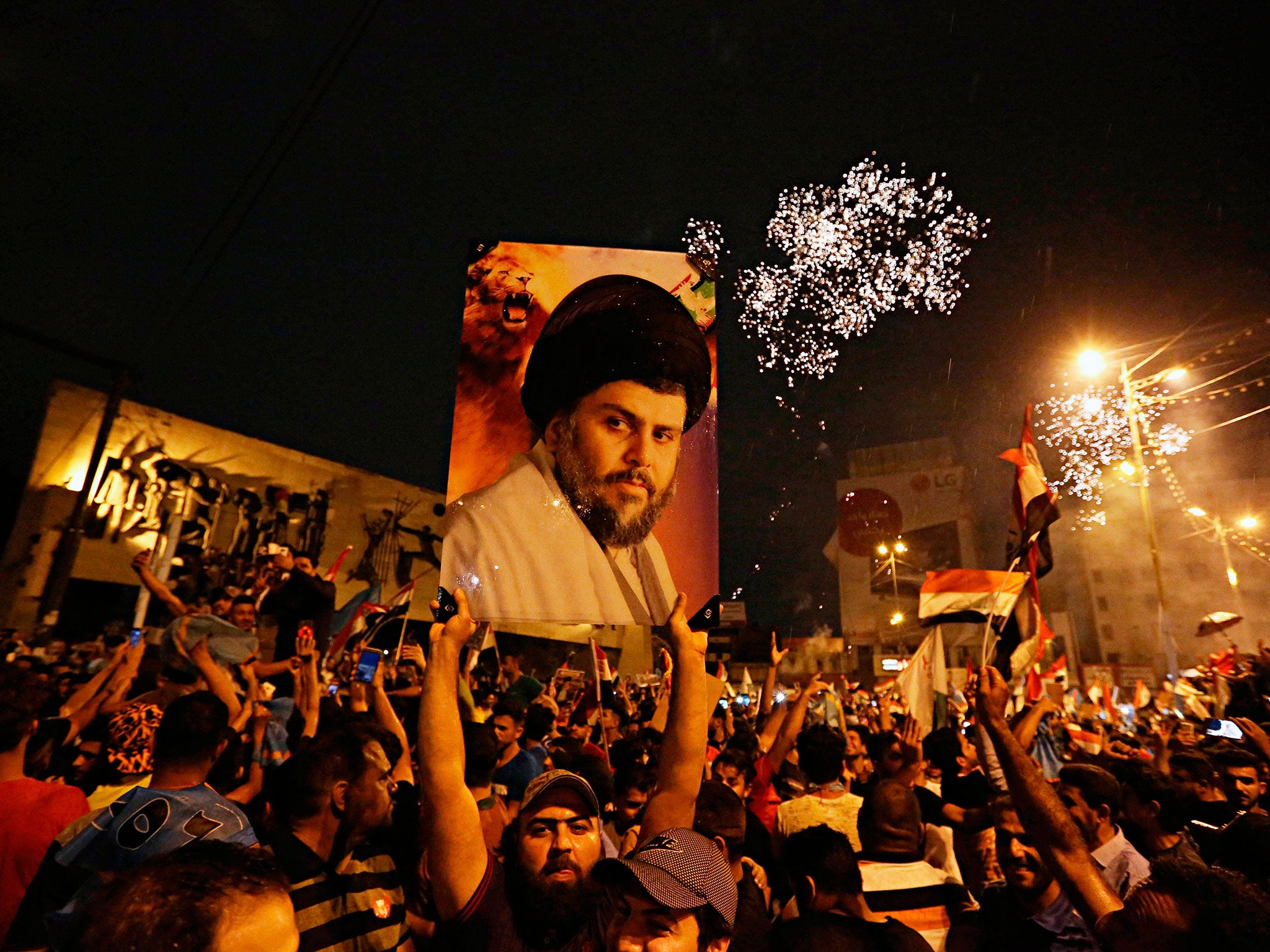Iraq elections: Final result gives Shia cleric Muqtada al-Sadr's coalition most seats in parliament
Announcement comes nearly a week after Iraqis cast their votes

Influential Shia cleric Muqtada al-Sadr's political coalition has won the most seats in Iraq's national parliamentary elections, according to complete results released by Iraq's electoral commission.
The announcement came nearly a week after Iraqis cast their votes on 12 May and put Iraqi Prime Minister Haider al-Abadi in third place, according to seat allocations. An alliance of candidates with close ties to mostly Iranian-backed paramilitary forces came in second.
"Your vote is an honour for us," Mr Sadr said in a statement released on Twitter just moments after the official announcement.
"We will not disappoint you," he continued, adding: "The blame, all the blame is on those who failed Iraq."
The election win marks the most significant victory of Mr Sadr's political career.
Partial results were announced earlier in the week, but allegations of irregularities and fraud delayed the complete count.
The vote was marked by record low turnout that benefited Mr Sadr who maintains loyal supporters who made it out to the polls when apathy kept many millions away.
No one alliance won an outright majority and negotiations over forming the government are expected to drag on for months as parties try to form a bloc large enough to gain a majority in parliament.
While Mr Sadr's coalition won the largest number of seats, it is yet unclear if the next prime minister will come from his camp. Prolonged negotiations could result in a compromise candidate from a rival coalition.
Following the 2003 US-led overthrow of Saddam Hussein, Mr Sadr burst onto the scene as a renegade champion of poorer Shias, leading militant fighters who carried out deadly attacks on American forces and were notorious for sectarian killings of Sunni Muslims.
In recent years, Mr Sadr has gained popularity as a nationalist voice, opposing Iranian influence and waging a public campaign against corruption.
For this election, he ran a non-sectarian campaign focused on issues of social justice, allying with secularists and Iraq's communist party, and broadening support beyond his traditional base.
AP
Join our commenting forum
Join thought-provoking conversations, follow other Independent readers and see their replies
Comments
Bookmark popover
Removed from bookmarks